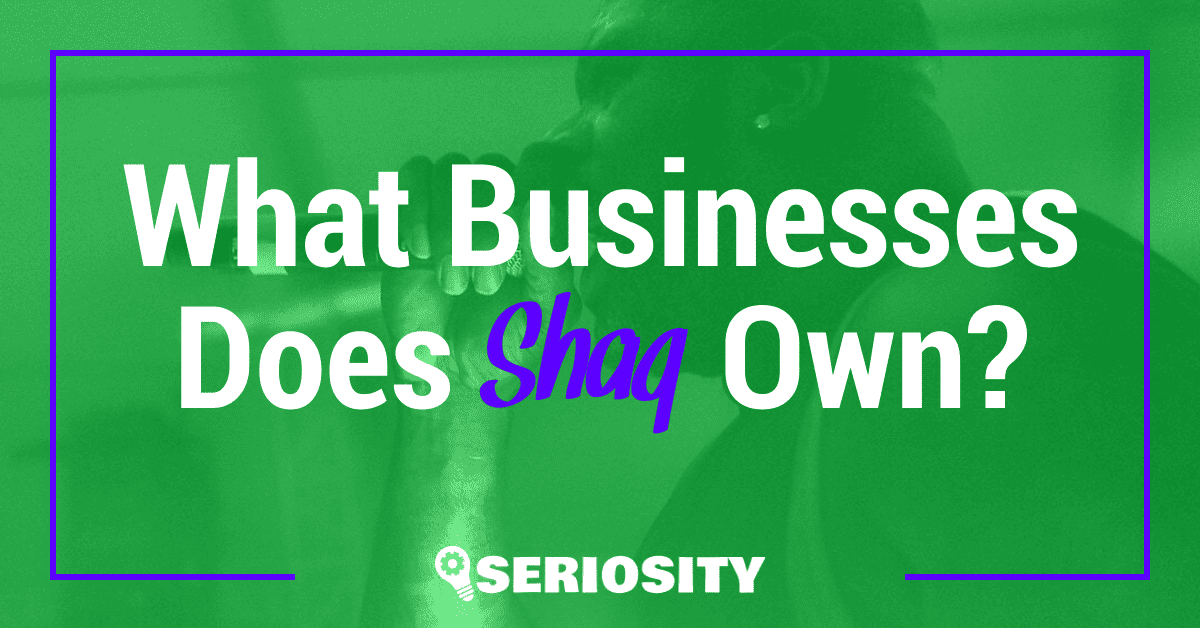KKR, a prominent global investment firm, operates across multiple sectors with a diversified approach to asset management and investment. The firm’s strategic investments span private equity, real estate, infrastructure, credit, and capital markets. By focusing on long-term value creation, KKR’s investment portfolio includes a multitude of companies and projects around the world, contributing to its reputation as a leading entity in the financial sector.

With a significant emphasis on generating strong returns and fostering shared success, KKR invests in companies and assets that promise growth and resilience in a dynamic economic landscape. The firm seeks to leverage its expertise and global network to support and transform the entities it invests in, ensuring sustainable progress and innovation across its portfolio. KKR’s approach to investment is informed by comprehensive due diligence, a keen understanding of market trends, and a commitment to corporate governance and responsibility.
Key Takeaways
- KKR invests globally to create long-term value across diverse sectors.
- Their strategic approach involves private equity, real estate, and infrastructure.
- KKR’s success is founded on growth, sustainability, and corporate stewardship.
KKR’s Investment Philosophy
https://www.youtube.com/watch?v=5_ymonc90Fw&embed=true
KKR, a prominent global investment firm, takes a nuanced approach to investing, focusing on long-term impact, embracing innovation and diversity, and fostering shared success among stakeholders.
Commitments and Impact
KKR believes in committing to the companies it invests in with a holistic view of driving growth and fostering sustainable impact. For instance, their Global Impact fund is directed towards investments that promote solutions to societal challenges. They invest globally across areas like private equity, real assets, and infrastructure, ensuring that their investments yield positive outcomes not just financially, but also for communities and the environment.
Innovation and Diversity
Innovation is at the heart of KKR’s ethos. One could say that, through their Tech Growth funds, they infuse capital into cutting-edge technology sectors, nurturing the growth of innovative companies. Moreover, KKR values diversity within its portfolio, supporting a wide array of industries and acknowledging that varied perspectives contribute to stronger, more resilient investments.
Shared Success
KKR emphasizes the significance of shared success with its investments. Their stake in companies isn’t simply financial; they strive to be trusted partners, contributing expertise for operational excellence. For example, their investment in C.H.I Overhead Doors fueled not just growth, but also an ownership culture among employees, resulting in successful outcomes for all parties involved.
Portfolio Companies
KKR’s investment landscape is diverse, focusing on companies that show significant growth potential across various sectors. Their portfolio spans technology, healthcare, energy, as well as gaming and sports, showcasing a tailored approach to investments and strategic growth.
Technology Investments
Within the technology sector, KKR’s investments include a range of companies that have revolutionized communication, business efficiency, and online presence. For instance, they have invested in Internet Brands, a company that offers web hosting services. KKR’s emphasis on technology also extends to software and cybersecurity solutions, reflecting their commitment to driving innovation in the digital space.
Healthcare Focus
KKR targets companies positioned to address global healthcare challenges through innovation. Their Health Care Growth portfolio includes businesses that aim to improve patient outcomes and enhance healthcare delivery systems. These investments are indicative of KKR’s proactive role in fostering growth in vital healthcare services and technologies.
Energy Holdings
Addressing the global demand for sustainable and reliable energy sources forms a key part of KKR’s portfolio. They support energy companies that focus on renewable resources and infrastructure, thus contributing to a cleaner and more sustainable energy landscape. KKR recognizes the importance of transitioning to renewable energy, and their portfolio reflects significant investments in this area.
Gaming and Sports
KKR has not overlooked the ever-expanding world of entertainment, particularly in the realms of gaming and sports. Companies like Epic Games, the creator of Fortnite, are part of their investment portfolio. By investing in high-potential entertainment entities, KKR taps into the consumer’s growing appetite for immersive gaming experiences and sports engagement.
Private Equity Investments
KKR’s approach to private equity investments focuses on delivering long-term value through a variety of strategies. They engage in significant transactions, nurturing companies to grow, and eventually, they realize returns on their investments.
Buyout Strategies
Buyout strategies are central to KKR’s investment approach. They often target undervalued or struggling businesses, implementing operational improvements and strategic direction. Over time, these efforts are aimed to enhance value before selling the companies for a profit.
Growth Equity
In the realm of growth equity, KKR provides funding to more mature companies poised for expansion. Here, the goal is to support businesses in sectors with a clear trajectory of growth to capitalize on their potential and bolster the portfolio‘s overall performance.
Venture Capital
When examining venture capital, KKR extends its reach into early-stage companies. These investments are typically more high-risk, but they offer the potential for substantial rewards if the companies can successfully disrupt markets and scale operations.
Real Estate Endeavors
https://www.youtube.com/watch?v=CABHCtRxP-M&embed=true
KKR’s approach to real estate investment exemplifies their commitment to diversity within their portfolio. They engage in substantial acquisitions, leading to a broad assembly of properties spanning various geographies and sectors.
In the realm of real estate, KKR actively seeks opportunities through both debt and equity strategies. The firm’s capability to invest around the world and across the capital structure allows them to offer solutions that are tailored to the varying degrees of risk, return, and liquidity desired by investors.
Investment Highlights:
- Diverse Portfolio: From commercial to residential assets, the KKR Real Estate’s investments are distributed globally, impacting both the development and improvement of properties.
- Flexible Capital: With a platform integrating debt and equity, they respond promptly to market changes and acquisition opportunities.
- Risk Management: KKR Real Estate prioritizes investing with a nuanced understanding of risk and potential returns.
Here is an outline of their focus:
| Sector | Action |
|---|---|
| Commercial Real Estate | Equity Investments |
| Housing Developments | Debt Financing |
| Asset Improvement | Strategic Acquisitions |
Their portfolio, as noted, encapsulates a significant portion of diverse real estate endeavors up to June 30, 2023, demonstrating a robust engagement in this particular market sector. It should also be pointed out that while KKR owns a mix of majority and minority real estate stakes, some investments, particularly those under restructuring or where KKR holds a lesser stake, are not always disclosed.
The firm’s strategies revolve around understanding the complexities of the real estate market, positioning themselves to capitalize on opportunities as they arise.
Infrastructure Projects
https://www.youtube.com/watch?v=v2ErHUmF63U&embed=true
KKR has established itself as a major player in the infrastructure sector, seeking opportunities that promise both capital preservation and value creation. With over $50 billion in assets under management, their influence spans across a multitude of projects essential for economic growth and sustainability.
Their investments lie predominantly within the energy spectrum, where KKR has made significant inroads. Examples include the backing of companies such as Crescent Energy, an independent U.S. oil and gas producer with a diverse range of assets across the lower 48 states. These endeavors provide critical resources necessary for the functioning of the economy, and demonstrate KKR’s commitment to supporting foundational industry sectors.
KKR’s Infrastructure Portfolio Highlights:
- Energy: Investments in oil and gas entities fostering energy supply.
- Broadband Expansion: Raising funds specifically aimed at developing broadband and other infrastructure which are pivotal for digital progression.
- Global Impact: A focus on infrastructure that encourages growth while attending to environmental and societal needs.
The firm also emphasizes on digital infrastructure, recognizing the sector’s rapid growth and vital role in the modern economy. Their investments have adapted to shifting demands, highlighting a responsive strategy to infrastructure development. The push into digital transformation is evident through strategic moves such as acquiring significant stakes in telecom ventures and fiber companies.
By managing a significant part of their portfolio in infrastructure, KKR underlines the importance of building and maintaining assets that serve as the backbone for various industries and contribute to economic vitality.
Credit and Insurance Services
https://www.youtube.com/watch?v=R2dYgQvC8cE&embed=true
Within the realm of investment, KKR demonstrates a strategic focus on the sectors of credit and insurance services, understanding the significant role these sectors play in the broader financial landscape.
Insurance Companies
KKR exhibits a commitment to the insurance industry, as evidenced by their acquisition strategy, notably with their cash purchase of the outstanding shares of Global Atlantic, substantially increasing their presence in this sector. This move by KKR underscores their belief in the growth potential and financial fortitude that insurance companies can offer.
Private Credit Solutions
On the spectrum of credit solutions, KKR places importance on private credit as a means to furnish investors with diversified lending opportunities. They focus on extending credit under carefully managed risk parameters, aiming to offer credit to reliable customers, as indicated by their expert approach outlined on their credit insurance solutions page. Their approach enables businesses to extend sales and reduce the risk of unexpected losses.
Capital Markets and Economy
https://www.youtube.com/watch?v=ka9fHkoMgkQ&embed=true
In examining the landscape where companies like KKR are active, the capital markets play a pivotal role. They represent the financial systems that facilitate the buying and selling of securities. This includes stocks and bonds, crucial components for private equity firms when structuring investments and leveraging opportunities.
The overall economy affects how capital markets perform. A strong economy often correlates with robust capital market activities, attracting a range of investors—from institutional ones like pension funds to individual retail investors. Conversely, during economic downturns, capital markets may face volatility, affecting how companies like KKR navigate their investments.
Banks are integral to these markets, providing financing and advisory services for mergers, acquisitions, and other corporate restructuring activities. They serve as intermediaries between investors and companies, offering products like loans and credit facilities that help fuel economic growth.
Behind the scenes, entities such as the Securities and Exchange Commission (SEC) ensure that markets remain fair and transparent. They regulate the markets to protect investors, maintain fair, orderly, and efficient markets, and facilitate capital formation. Compliance with SEC regulations is vital for the credibility of capital markets, providing confidence to participants that the economic landscape is under vigilant oversight.
Understanding the interplay between capital markets and the economy is crucial for entities like KKR—they must monitor economic indicators, regulatory changes, and the financial health of banks to make informed decisions that align with their investment strategies.
Investment Funds and Institutions
KKR’s involvement with investment funds and institutional investors is characterized by a diverse portfolio and robust relations with entities like pension funds and endowments. They engage in strategic partnerships to secure investments that drive growth across various sectors.
Institutional Investor Relations
KKR manages a broad range of assets for institutional investors, including financial holdings companies, banks, insurance companies, mutual fund managers, and more. Their approach is tailored to meet the specific investment goals of these entities, often focusing on long-term growth and capital appreciation. Their investment portfolio is carefully selected to represent their diverse strategies across equity, credit, real estate, infrastructure, and more.
Pension Fund Collaborations
They also have a strong history of collaborating with pension funds. These partnerships are designed to maximize retirement outcomes for individuals by investing in private equity, real assets, and credit. Pension fund managers value KKR for their vast experience and commitment to fiduciary responsibility. Pension funds and self-managed pension funds form a significant part of the institutional investments KKR handles, providing stable, long-term benefits for retirees and other beneficiaries.
Global Presence and Strategic Partnerships
KKR, a renowned investment firm, has made significant strides in expanding its global impact through its presence in key financial hubs and forging strategic partnerships. These initiatives enable KKR to offer a diverse range of investment opportunities to its clients across different regions.
Hong Kong and Singapore
KKR has established a solid foothold in Asia, with significant investments in Hong Kong and Singapore. These cities serve as critical gateways to the Asian markets, and KKR’s presence there reflects its commitment to investing in dynamic economies. In Hong Kong, KKR has partnered with companies, taking advantage of the region’s robust financial services. Similarly, in Singapore, KKR leverages the city’s strategic location and favorable business environment to enhance its investment portfolio.
-
Hong Kong Partnerships:
- Collaboration with hedge funds and financial firms.
- Investments in long-short equity strategies.
-
Singapore Investments:
- Exposure to a variety of sectors, including tech and healthcare.
- Use of Singapore’s infrastructure to bolster operational capabilities.
Dubai Investments
In Dubai, KKR has seized opportunities that align with the city’s growing emphasis on diversification away from oil-dependent sectors. They capitalize on strategic partnerships here to extend their influence in the Middle East and North Africa (MENA) region. KKR’s relationship with local entities underscores its ability to offer investment options that are tailored to the needs of the region, optimizing the financial service expertise available.
- Investment Strategy in Dubai:
- Focusing on sectors such as real estate and infrastructure.
- Enhancing value through access to KKR’s global resources.
Through strategic alliances and a keen awareness of regional strengths, KKR’s global presence underlies its responsive and friendly approach to international investment opportunities.
Corporate Governance
https://www.youtube.com/watch?v=ppz3wY5L3uE&embed=true
Corporate governance at KKR is fundamentally about ensuring the company’s leadership is acting in the best interests of stakeholders and maintaining a foundation of trust. It encompasses the systems, principles, and processes by which the company is directed and managed.
Leadership and Stewardship
At the helm of KKR’s corporate governance is Co-Executive Chairman Henry Kravis, who co-founded KKR in 1976 and has been a driving force behind its growth and strategy. Effective leadership at KKR also involves Scott C. Nuttall, who serves as the Chief Executive Officer (CEO) and is integral to the strategic direction and daily operations of the firm. Their stewardship reflects a dedication to upholding the interests of all stakeholders, which is essential for long-term success.
Transparency and Trust
Transparency is critical for building and maintaining trust between KKR and its stakeholders. It involves clear communication about the company’s operations, investments, and performances. Through investor relations, KKR demonstrates its commitment to transparency, providing stakeholders with detailed and accessible information about its governance structures and business undertakings.
Financial Performance
KKR’s financial performance can be scrutinized through their published Annual Report and Form 10-K which contain comprehensive details on assets and profitability. These documents are indispensable for investors seeking to understand the company’s health and prospects.
Annual Report and 10-K
The Annual Report for KKR outlines the company’s financial status, including profits, losses, and overall growth metrics. In the report, as of June 30, 2023, one can find an in-depth review of KKR’s investments and significant aspects of the financial year. The Form 10-K is an extension of this report, providing a detailed and audited financial statement, obligatory for publicly-traded companies to file annually with the SEC.
Asset Management Metrics
KKR’s success in managing assets is exemplified by its Assets Under Management (AUM), a crucial metric indicating the total market value of the assets that the company manages for its clients. A distinct and equally telling figure is the Fee Paying Assets Under Management (FPAUM), which specifically reflects the subset of those assets that generate management fees for the firm. The growth in these metrics often signals the firm’s ability to attract and retain capital, showcasing its track record of being profitable.
Frequently Asked Questions
https://www.youtube.com/watch?v=CkF8YpHZJEo&embed=true
Exploring the investment patterns of KKR reveals a strategic focus on diverse sectors and a high level of activity in global markets.
What types of companies does KKR typically target for investment?
KKR is known for targeting a wide range of companies, particularly those showing strong growth potential and market leadership within their respective sectors. Their portfolio often includes private equity, tech growth, and health care growth opportunities.
Can you name some notable businesses that KKR has invested in recently?
Recently, KKR has expanded its portfolio with a variety of companies across different industries. For specific names and details, one can review the latest updates directly from KKR’s portfolio overview.
What industries are KKR’s investments primarily focused on?
KKR’s investments span industries including healthcare, technology, infrastructure, real estate, and beyond. They aim for a diversified investment approach to mitigate risk and capitalize on growth in various market segments.
How does KKR’s Impact Fund choose which companies to invest in?
KKR’s Impact Fund emphasizes investments in companies that can contribute positively to societal outcomes alongside financial performance. They assess opportunities based on their potential to address significant societal challenges.
What are some of the successful exits that KKR has accomplished with its investments?
KKR has achieved numerous successful exits that underscore their investment expertise. A closer look into their investment history can provide examples of these strategic divestitures.
How can I find information about the latest investment strategies of KKR?
For the latest investment strategies, one might find it helpful to consult KKR’s official communications, including frequently asked questions and investor relations resources, which shed light on their tactical approaches.




















